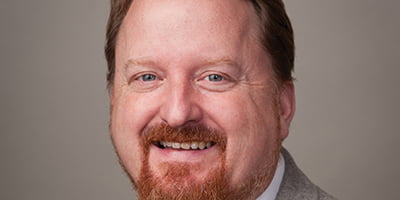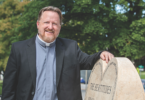
Bill Scholl is the archdiocesan consultant for social justice. You can email him at: socialjustice@archkck.org.
by Bill Scholl
Recently, in a Sep.t 16 homily, Pope Francis preached, “A good Catholic meddles in politics, offering the best of himself — so that those who govern can govern.”
Such a teaching is indeed providential, considering the U.S. bishops have been accused of meddling in the recent immigration debate. What has upset some of the faithful is a recent advocacy push by the bishops to get legislators to vote for comprehensive immigration reform. What animates much of the acrimony is the mislabeling of the bishops’ position as “amnesty” and support for “illegals.”
The bishops do not support amnesty for people who came or reside in this country without legal permission. Amnesty would be to allow people who did not follow the rules to remain in this country without any penalty. The “amnesty” label reproaches any policy that lets people stay as a reward for bad behavior and encouragement for more. currently, there are over 11 million undocumented people residing in this country. Some kind of legal incentive to come forward and normalize their situation has to be offered to restore order.
The comprehensive plan that the bishops support would entail penalties and force such immigrants to the back of the line in applying for citizenship. This plan would also allow for immigrants who were brought here as children to have special consideration in aplying for residency. One of the most vitriolic chapters in this debate has concerned the DREAM Act. Its legislation was created specifically to help immigrant children. Just because the bishops’ policy is merciful does not mean it is amnesty.
Opponents of immigration reform label immigrants without documentation as “illegals.” The term evokes images of criminality and is meant to dehumanize the immigrant. Actions are illegal, but people never are. To label such people as illegals makes the bishops’ advocacy for them appear as though our shepherds support breaking the law. This is not the case. The bishops argue that by allowing for more legal immigration, which promotes unification of families, our nation can more effectively stop illegal immigration. For the degree to which something is illegal, it cannot be regulated. Earlier in that same homily the pope taught: “Politics, according to the social doctrine of the church, is one of the highest forms of charity, because it serves the common good. I cannot wash my hands, eh? We all have to give something!”
It’s time we faithful follow our pope and the bishops’ lead. The plight
of millions of immigrant families is unjust and the situation is untenable.
The Gospel compels us to meddle, so call your representatives today, tell them you support comprehensive immigration reform, and pray they have the grace to govern well.


